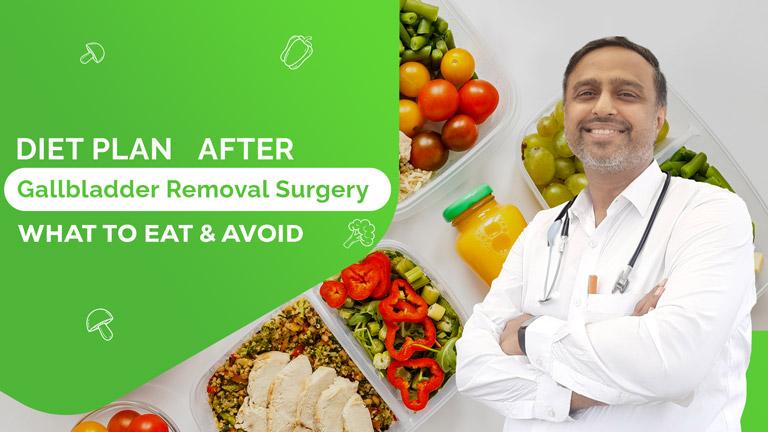Role of Gallbladder in Digestion Process Here
Foods to eat after gallbladder surgery
Lean Proteins: Lean protein sources such as poultry (skinless), fish, tofu, and legumes provides essential amino acid. You must include them in your diet as they are easier to digest too.
Fruits and Vegetables: Opt for a variety of colorful fruits and vegetables, which are rich in vitamins, minerals, and fiber. However, be cautious with high-fiber vegetables, as they might cause gas and bloating in some individuals.
Whole Grains: Whole grains such as brown rice, oats, and whole wheat bread are packed with fiber and nutrients and aid in digestion.
Healthy Fats: Include sources of healthy fats such as avocados, nuts, seeds, and olive oil in moderate amounts. These fats are easier to digest compared to saturated and trans fats.
Low-Fat Dairy: If you tolerate dairy well, opt for low-fat or fat-free options like yogurt and cheese. Some individuals might need to limit dairy intake if it causes discomfort.
Moderate Carbohydrates: Include complex carbohydrates like whole grains, sweet potatoes, and starchy vegetables.
Fluids: Stay hydrated by drinking plenty of water. Herbal teas and clear broths are also good options to support digestion and overall well-being.
Foods to avoid after gallbladder surgery
High-Fat Foods: Steer clear of fried foods, greasy foods, fatty cuts of meat, and high-fat dairy products. These can be difficult to digest and might lead to discomfort.
Spicy and Greasy Foods: Avoid foods with a high spice level or those prepared with a lot of oil or butter.
Processed Foods: Minimize consumption of processed and packaged foods, as they often contain unhealthy fats and additives.
Excessive Caffeine and Alcohol: Limit your intake of caffeine and alcohol drinks, as they can irritate the digestive system.
High-Sugar Foods: Reduce your consumption of sugary foods and beverages.
Gas-Inducing Foods: Some foods like beans, cabbage, broccoli, and onions can lead to gas and bloating. Monitor your reactions and adjust your consumption accordingly.
Sample Post Gallbladder Surgery Diet Menu
Here’s a simple diet plan list you could consider after the gallbladder removal surgery
Breakfast:
- Scrambled eggs with spinach and tomatoes
- Whole wheat toast
- Herbal tea or water
- Lunch:
- Grilled chicken or tofu salad with mixed greens, cucumbers, and carrots
- Quinoa or brown rice
- Green veggies/daal
Afternoon Snack:
- Yoghurt/dahi
Dinner:
- Baked fish (salmon or cod)
- Steamed veggies/chapatis/rice
- Mashed sweet potatoes
Evening Snack:
- Sliced apples or some fruits
Note: Remember, individual tolerance to different foods and post-gallbladder surgery diet recipes can vary, so it’s important to pay attention to how your body reacts to certain foods. Gradually reintroduce foods and observe any digestive symptoms. If you experience persistent discomfort or digestive issues, consult your healthcare provider or a registered dietitian for personalized guidance.
This sample plan is just a general guideline. It’s always best to consult with a healthcare professional or registered dietitian to create a diet list that meets your specific needs and takes into account any other health conditions you may have.
Wrap-up Tips on Post-Gallstone Surgery Diet:
Adjusting to life after a gallbladder removal operation requires mindful eating and a balanced diet. Focus on incorporating easily digestible foods, avoiding high-fat options, and paying attention to your body’s signals. Remember, every individual is unique, so it’s important to listen to your body and make adjustments based on your own experiences. Consulting with Dr. Sunil Tibrewal, an experienced laparoscopic gallbladder removal surgeon can provide you with personalized guidance, ensuring that you continue to nourish your body while promoting digestive comfort.






